Xinjiang has become an important force in the viscose industry in China.
Recently, the "Korla Economic Development Zone Textile and Apparel Industry Development Forum and Congratulations on the 10th Anniversary Celebration of Fulida's Entry into Xinjiang" was held in Xinjiang Fulida Fiber Co., Ltd. (hereinafter referred to as "Fulida Xinjiang") located in the Korla Economic Development Zone. Attracted to Xinjiang Fulida.
Click to know immediately how to sell cashmere sweaters
Coincidentally, a few days ago, Xinjiang Sinochem Chemical Co., Ltd. (hereinafter referred to as “Zhongtai Chemicalâ€), which is owned by Xinjiang Fulida, released its performance forecast for the first half of the year. During the period, it is expected that the company will achieve a net profit of 1.23 billion yuan to 1.28 billion yuan, a year-on-year increase. Up to 351.81%~370.17%. Such high performance growth has also attracted the attention of the industry.
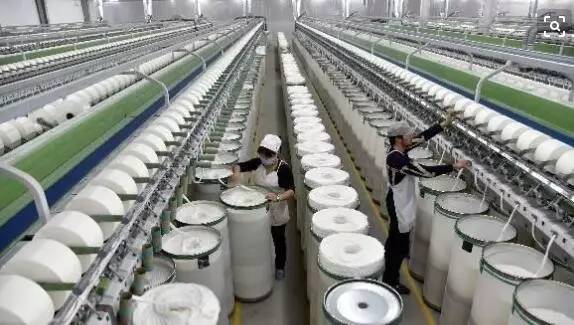
â–² Spinning workshop under Zhongtai Chemical.
So, as a company rooted in Xinjiang, Zhongtai Chemical, which originally built chlor-alkali, has completed the layout of viscose business step by step in recent years. How can we fully grasp the policy dividend and build a "chlorine alkali-viscose fiber-spinning" one-stop industrial chain to achieve synergy? Next, what kind of layout will it have in the textile fiber segment?
Layout of viscose industry through equity participation, acquisition, etc.
Zhongtai Chemical had previously mainly engaged in the caustic soda business. In the past three to four years, it gradually formed an industrial chain of “chlorine alkali-viscose fiber-spinning†through share participation, acquisitions, and the newly established company, which became China's textile chemical fiber industry. One of the "big brothers".
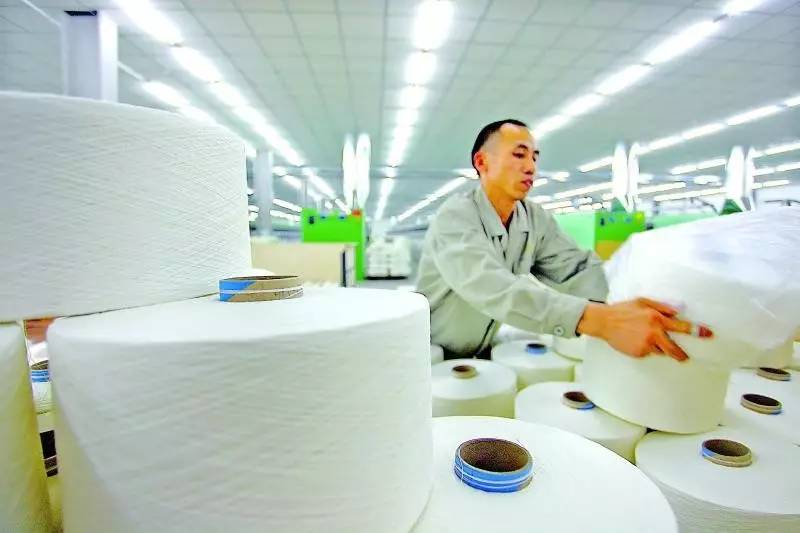
â–² Most of viscose staple fibers produced by Xinjiang Fulida can be digested by two spinning mills under the company's subsidiary.
According to financial data, as of the end of 2016, Zhongtai Chemical had a production capacity of 1.53 million tons of polyvinyl chloride resin (PVC), 1.1 million tons of ion-exchange membrane caustic soda, 360,000 tons of viscose fiber, and 2.0 million spindles.
Xinjiang Fulida is one of the companies it acquired. Xinjiang Fulida, established in 2007, was originally a subsidiary invested and set up by Zhejiang Fulida Group. In the first half of 2014, Sinochem Chemical invested 477 million yuan in equity and became a second-largest shareholder of Xinjiang Fulida; 2014 At the end of the year, Zhongtai Chemical increased its capital by holding 51% of its equity and formed a controlling share. In April 2016, Zhongtai Chemical increased its capital again, enabling Xinjiang Fuli to become a wholly-owned subsidiary of Zhongtai Chemical.
In fact, the acquisition of Xinjiang Fulida by Zhongtai Chemical Co., Ltd. is a matter of course. Caustic soda is one of the major chemical auxiliary materials needed to produce viscose staple fiber and its main raw material, cotton pulp. For each ton of viscose staple fiber produced, approximately 0.6 tons of caustic soda is consumed.
Relevant person in charge of Xinjiang Fulida introduced to reporters. Prior to this, Fulida was the largest user of caustic soda in China and Thailand. If calculated according to the concentration of 100%, Furuida purchases approximately 240,000 tons of caustic soda annually from Sinochem Chemical; if the concentration is calculated at 50%, this purchase volume is approximately 480,000 tons. Therefore, Sinochem Chemical's initial participation in Xinjiang Fulida is considered from the perspective of business cooperation.
From the initial equity participation to wholly-owned holding, Zhongtai Chemical has come one step at a time. Business cooperation is the foundation. The company gradually extends the industrial chain from chlor-alkali to the viscose industry. From a strategic perspective, it is in response to the country's strong support for the development of Xinjiang's textile and garment industry strategy. Investment is also in line with national policy guidance and can enjoy policy dividends.
In response, the relevant person in charge of Xinjiang Fulida Company stated that after the acquisition of Xinjiang Fulida, it produced bulk chemical raw materials used in viscose, which was basically digested and settled by Zhongtai Chemical. The layout of the viscose industry led to the sale of most caustic soda products of Zhongtai Chemical in the field, which also saved production costs and transportation costs. At present, Xinjiang Fulida can consume about 250,000 tons of caustic soda annually. The company also participates in Xinjiang Silver Eagle Chemical Fiber, which consumes more than 30,000 tons of caustic soda annually.
“In the two years that I just invested in viscose factories such as Xinjiang Fulida, several viscose enterprises in Xinjiang have been shut down for rectification due to strict environmental protection policies. However, the production of Xinjiang Fulida has not been affected. Market conditions are relatively sluggish, and Xinjiang Fulida is not very profitable. When viscose prices rise, the benefits of Fulida Xinjiang begin to show itself, said the person in charge above.
Click to learn immediately about the cashmere sweater industry
In addition, in July 2016, Sinochem also signed the “Reform Framework Agreement on Xinjiang Tiantai Fiber Co., Ltd.†with Shandong Yinying, Shandong Yinying Chemical Fiber, and Xinjiang Tiantai Fiber Co., Ltd., and owns 30% of Xinjiang Tiantai Fiber. Equity. Xinjiang Tiantai currently has an annual output of 100,000 tons of cotton pulp and 50,000 tons of viscose fiber. The annual consumption of caustic soda is approximately 60,000 tons.
Series layout gradually reflected through the rapid growth of company performance. According to financial data, in 2016, Zhongtai Chemical achieved operating revenue of 23.362 billion yuan, a year-on-year increase of 41.84%, and net profit of approximately 1.843 billion yuan, a year-on-year increase of 5959.14%. Among them, the subsidiary company Xinjiang Fulida realized revenue of 6.233 billion yuan and net profit of 716 million yuan. During the period, Sino-Thai Chemical produced a total of 369,000 tons of viscose fiber, achieved revenue of 2.51 billion yuan, and gross profit margin was 29.18%, an increase of 7.85% over the same period of last year.
In the same period, the gross profit margins of the other two domestic viscose tap listed companies were 19.21% and 19.87%, respectively. The gross profit margin is about 10% higher than others, which fully demonstrates the advantages of Sinochem Chemical in the production cost and comprehensive competitiveness of viscose products.
Digging deep into the value of "pulp-viscous short-spinning" chains
How to do with hundreds of thousands of tons of viscose staple fiber produced? Who to sell to? This point, Zhongtai Chemical also has its own thinking.
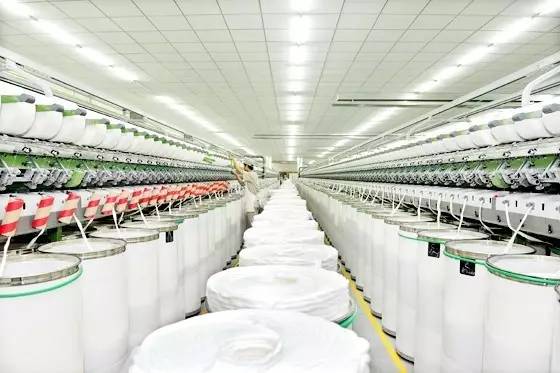
▲ Through the acquisition and establishment of a new spinning mill, Zhongtai Chemical has implemented a “Viscose-Spinning†industrial chain.
As we all know, due to the advantages of sufficient cotton resources in Xinjiang, local spinning companies purchase viscose staple fibers for blending with cotton fibers to form viscose yarns. Therefore, Sinochem’s development strategy is not only a step-by-step extension of the industrial chain to the viscose industry, but also the acquisition of Bazhou Jinfu Special Yarn Industry Co., Ltd. (hereinafter referred to as “Jinfu Yarn Industryâ€) and the investment in the construction of Xinjiang Furui Zhenlun. Cotton Spinning Co., Ltd. (hereinafter referred to as “Fuli Songâ€), thus continuing to extend the industrial chain down to the spinning industry, and strive to create a "chlorine alkali - viscose fiber - spinning" such a more complete industrial chain.
In August 2014, when Zhongtai Chemical did not form a complete controlling stake in Xinjiang Fulida (holding 30% of the shares), it invested 88.7 million yuan in Xinjiang Fulida and acquired the Jinfu Yarn Industry Co., Ltd. which was established in March 2013 in Korla. The 51% stake. In 2016, Zhongtai Chemical purchased the remaining 49% equity of Jinfu Yarn Industry through the issuance of shares to purchase assets, forming a complete control of the company.
At the end of October 2014, Xinjiang Fulida and Suzhou Zhenlun Lun Cotton Spinning Co., Ltd. jointly invested in the establishment of Fuli Zhenlun. Fu Li Zhen Lun is also located in Korla. It mainly produces blended yarns, special yarns, and other products. It is divided into two phases. Xinjiang Furida holds 51% shares, and Suzhou Zhenlun holds 49%. It will form an annual output of 2 million ingots as planned. Spinning scale.
In 2016, with the gradual commencement of production of the Fu Li Zhen Lun and Jin Fu Yarn projects, Sino-Thai's yarn production increased significantly from 2015. At present, Sino-Thai Chemical Co., Ltd. has begun to take shape with Jinfu Yarn (air-spinning-based) and Fuli-Shenzhen (Vortex Spinning-based) as the main cotton textile segment. Jinfu Yarn Industry is currently the largest air-spinning manufacturing enterprise in Xinjiang. Xinjiang's first vortex spinning manufacturer. By the end of 2016, Jinfu Yarn had an annual production capacity of 1.35 million spindles, and Fulizhen Lunong had an annual production capacity of 665,000 spindles.
According to the person in charge mentioned above, the two spinning mills of Jinfu Yarn Industry and Fuli Zhenran are located next to Xinjiang Fulida Viscose Factory. If the company's current spinning capacity of 2.01 million spindles, the viscose staple fiber produced by Xinjiang Fulida and other companies can achieve local digestion of about 560 tons per day, and it only needs to sell three to four hundred tons of viscose staple fiber externally every day. , mainly sold to Shandong, Zhejiang, Fujian and other places, but also some exports. Over the past few years, Sino-Thai Chemicals has sold viscose staple fibers in markets such as Turkey, Indonesia and Brazil.
Click to know how to trade Cashmere Sweaters
According to the financial data, in 2016, Zhongtai Chemical's yarn business achieved output of 176,600 tons, which represented a year-on-year increase of 177.24%, and achieved sales of 165,600 tons, an increase of 179.73% year-on-year. From the perspective of revenue, its yarn business achieved revenue of 2.418 billion yuan, an increase of 199.92% year-on-year, and gross profit margin was 25.52%, an increase of 6.52 percentage points over the previous year. Among them, Jinfu Yarn Industry achieved revenue of 1.63 billion yuan, net profit of 93,191,900 yuan; Fu Li Zhen Lun realized revenue of 789 million yuan, net profit of 71,030,600 yuan.
In 2016, when many spinning companies in the Mainland were under considerable pressure for performance, the yarn sales achieved by Sino-Thai Chemical in Xinjiang was so striking. It is also worth noting that, in 2016, the sales volume of viscose staple fibers produced by the factories of Sino-Chemical Chemical Co., Ltd. after deducting the usage of Jinfu Yarn Industry Co., Ltd. and Fuli Zhen Lun Lun, was approximately 214,500 tons.
The deeper meaning is that by investing in Jinfu Yarn Industry and Fuli Zhen Lun, Sinochem Chemical has accelerated the industrial integration of the textile segment and brought into full play the synergistic effect of the integrated development of “chlorine alkali-viscose fiber-spinning†upstream and downstream. Also built a business model of the entire industry chain.
Relying on policy dividends to seek greater expansion
Sino-Thai Chemicals can achieve such a rapid expansion. In addition to the comprehensive strength of the company itself, fully relying on and enjoying the policy dividend is certainly an important factor.
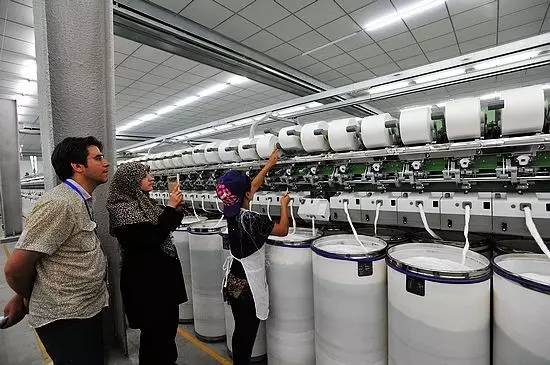
â–² Spinning workshop under Zhongtai Chemical.
With the gradual implementation of the “Guiding Opinions on Supporting the Development of Textile and Garment Industry in Xinjiang to Promote Employment†issued by the State Council, Xinjiang has implemented a “package†to support the vigorous development of the textile and apparel industry. This is the Sino-Thai chemical in viscose fiber, spinning The development of the field provides strong policy support.
At present, the raw materials used by Sino-Texaco's spinning companies can probably be subsidized by 800 yuan per ton. The yarn's out-of-bounds shipping costs will also have different subsidies depending on the yarn count. In terms of loans, the company is given a discount of about 4%, which greatly reduces the use of funds. At the same time, there are subsidies for building factories.
It is understood that since 2014, Sinochem has begun to enjoy a number of preferential policies in terms of freight subsidies, raw material subsidies, loan interest subsidies, and taxation. The financial report shows that in 2016, Zhongtai Chemical obtained various government support funds of 326.5 million yuan, a year-on-year increase of 11.93%.
Such generous “true gold and silver†support will also further promote Sino-Thai Chemical’s continued expansion of the textile landscape. So, what is its overall layout in the viscose industry?
The above-mentioned person in charge pointed out that it can be said that at present, enterprises producing viscose staple fibers in Xinjiang, in addition to Australia, all belong to Sinochem. By consolidating the “chlorine-alkali- viscose-spinning†integrated industrial chain step by step, the company will actively use the advantages of rich cotton linter resources, energy, and industrial policies in some areas of Xinjiang, and will continue to promote Alar Fuli’s 200,000 tons of adhesives. The construction of plastic fiber project will eventually achieve an annual production of 900,000 tons of viscose fiber layout, so that the company's most caustic soda products to achieve local sales, save production costs and product sales transportation costs, improve the company's overall profitability. The company will also deepen its refined management model, optimize transportation methods, strengthen environmental protection management, and exert intensive effects. With the help of new technologies, new technologies and 'production, research and development' platforms, it will create a pulp and raw materials production base.
However, due to the unique production technology of viscose products, how to solve environmental problems is of utmost importance in the process of vigorously advancing the expansion of this business. In response, Zhongtai Chemical invested RMB 800 million in 2016 to improve the processes of desulfurization, denitrification, sewage treatment, and waste gas recovery. It analyzed the difficulties in the treatment of pulp and waste water, developed a mixed treatment process for pulp and waste water and viscose waste water, combined with flue gas. The desulfurization process uses waste and waste. Three kinds of sludge mixing and proportioning technologies have been studied. The effective treatment of waste water and sludge has been realized, and the key environmental issues in viscose production have been solved.
Click to know how to trade Cashmere Sweaters
In the spinning segment, Zhongtai Chemical will continue to promote the construction of 1.30 million spindle spinning (phase 2) or 650,000 spindle spinning yarns in Jinfu Yarn Industry and the construction of 2 million spindle spinning yarns by Fuli Zhenlun to complete the yarn production capacity of the company. expansion. In other words, in the future, if the annual spinning capacity of 3.5 million spindles planned by Zhongtai Chemical is fully formed, it is expected that the annual production of viscose staple fiber will basically achieve in-situ digestion.
Sino-Thai Chemical's "ambition" in the textile sector does not stop there. In July 2016, Zhongtai Group, a subsidiary of Sinochem Chemical, announced that a PTA project with a total investment of 4.6 billion yuan and an annual output of 1.2 million tons will be located in Korla. This means that after the project is completed and put into production, Xinjiang will have the raw material basis for the development of the polyester business. By then, if Xinjiang can really produce polyester staple fiber, it will be able to be blended with cotton fiber and viscose staple fiber, and further expand the blended yarn business, which will open up a new world.
“In short, the Group’s development strategy is based on the integrated circular economy industrial chain of “coal-electricity-chlor-alkali-viscose-spinning†upstream and downstream integration, which fully realizes the efficient conversion of resources and energy on the spot. The core competitive advantages in terms of resources, cost, technology, and scale will create a clustered, park-based chlor-alkali and viscose yarn production base, said the person in charge.
Want to learn more about the sale of cashmere sweaters, cashmere sweaters, cashmere sweaters, and cashmere sweaters?
Pay attention to WeChat public number "Cashmere sweater industry platform" to learn more about cashmere sweater information

Pe Solid Color Embossed Tablecloth is widely used for parties,Solid Tablecloth is waterproof, oilproof, heat resistant, wear resistant, non toxic, durable.Disposable tablecloths are also very convenient to use.Hundreds of pantone colors for your selection.
Material :PEVA/PE
Specification:Customized size
Brand name: shangyou
Color:Many colors such as red yellow blue and green
Weight:28gsm ,37gsm or customized
Place of origin:Jiangsu China
Feature:
1. Waterproof, oilproof, heat resistant, wear resistant, non toxic, durable.
2. Hang down naturally, will not wrinkle, no fading
3. Can replace the cotton, fibre or lace tablecloths which are difficult to clean and expensive.
4. Hundreds of attractive designs for your selection.
Packing:pp bags or other
Applied range:Home,hotel,party and so on
Port of loading:Shanghai port ,Ningbo port
Payment terms:T/T ,L/C
Delivery time: 45days
MOQ:3000pcs

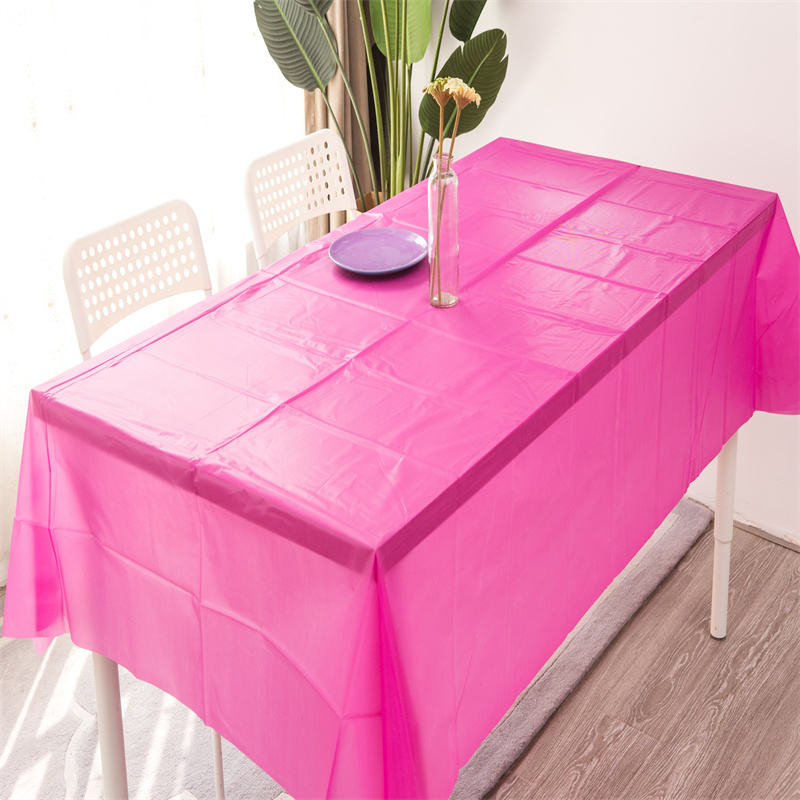
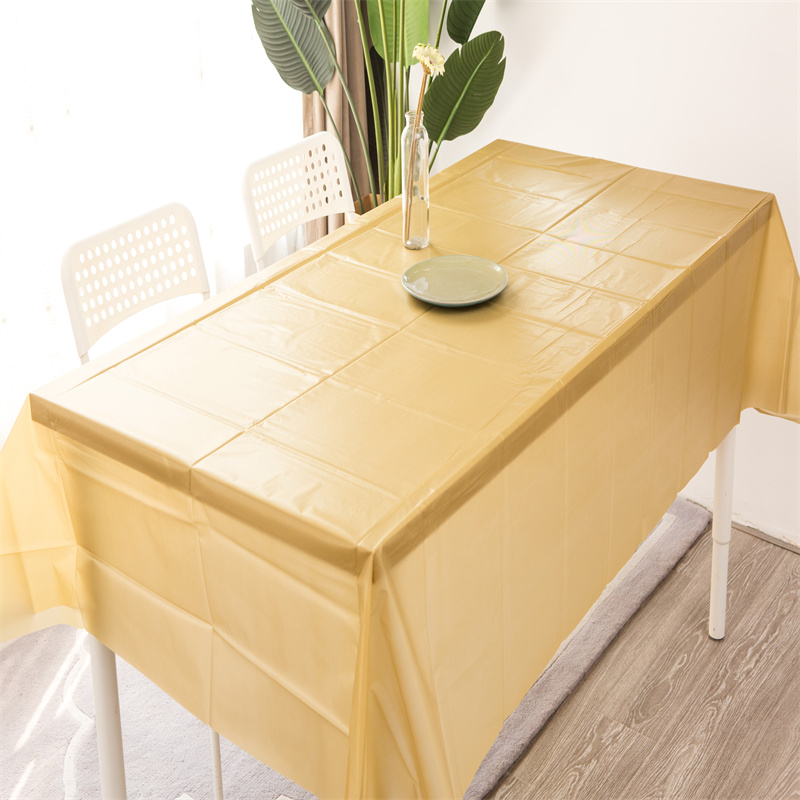
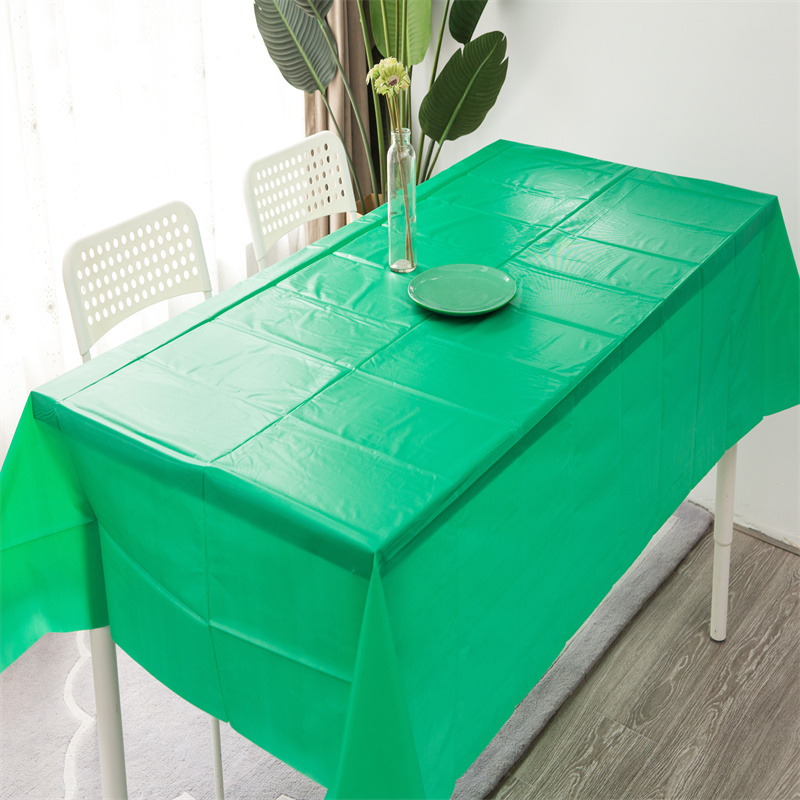
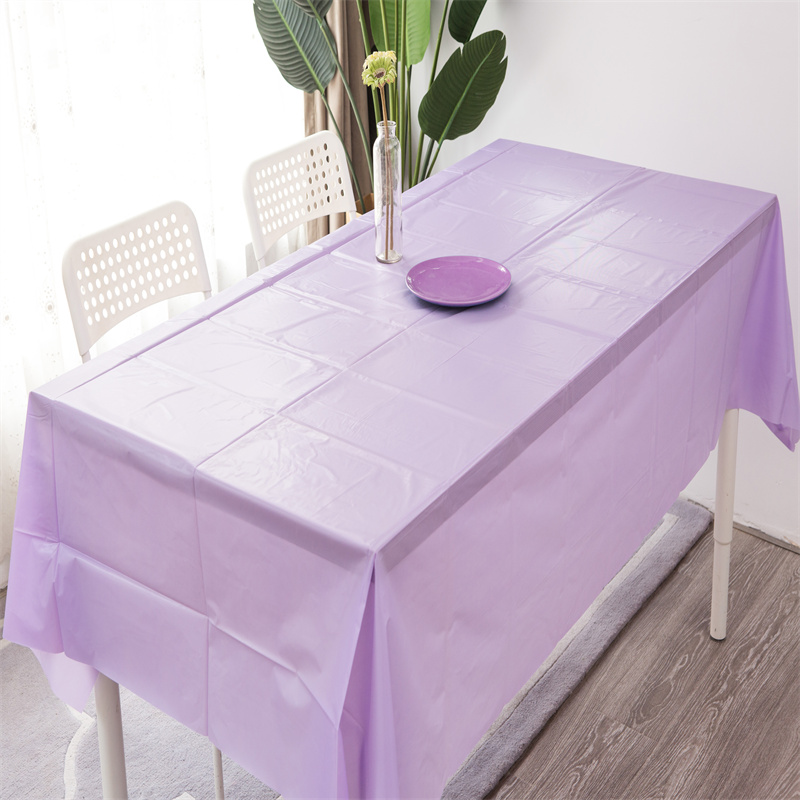
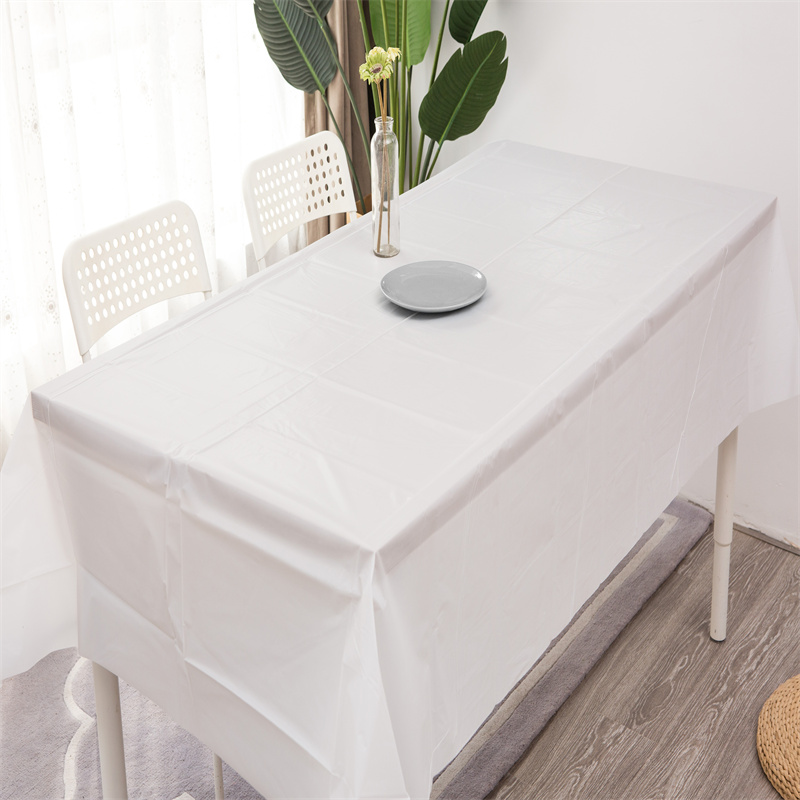
Solid Tablecloth,Pe Solid Color Embossed Tablecloth,Solid Color Tablecloth,Solid Peva Party Tablecloth
Jiangyin Shangyou Plastic Co.,Ltd. , https://www.jyshangyouplastic.com